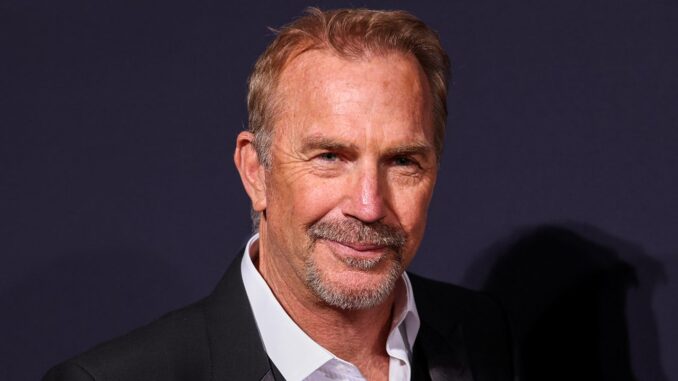
The news landed like a dust storm across the vast, digital plains of the internet, carrying with it a tangible sense of disbelief and a faint, acrid scent of betrayal. Kevin Costner, the stoic, gravel-voiced patriarch whose very presence anchored the sprawling saga of “Yellowstone,” was reportedly quitting before the final chapters could unfurl. For a fanbase that had invested years in the Dutton family’s brutal struggle for land and legacy, this wasn’t just a casting change; it was a seismic tremor, threatening to crack the very foundation of their beloved show and leaving them, indeed, reeling.
Costner wasn’t merely an actor playing a role; he was John Dutton. He embodied the grizzled, unyielding spirit of the American West, a man etched from the very landscape he fought to protect. His posture, a perpetual slight lean forward as if bracing for the next blow, his eyes, holding the weight of generations of sacrifice and sin, and his voice, a low rumble that could deliver both a threat and a tender truth – all these elements converged to create a character as iconic and immovable as the Montana mountains. For many, John Dutton was the beating heart of “Yellowstone,” the moral (or amoral) compass around which every other character orbited. His commitment to “the land” and “the family,” however bloody his methods, was the show’s unshakeable thesis. To imagine the final, climactic acts of this modern Western epic without its central figurehead was akin to picturing the Grand Canyon without its depth, or a lone rider without his steed.
The sting of the announcement was amplified by its timing: “before the final chapters.” Fans had envisioned a grand, perhaps tragic, but undeniably conclusive end for John Dutton. They had speculated about his ultimate fate – would he ride off into the sunset, conquer all enemies, or finally succumb to the weight of his empire? The narrative tapestry of “Yellowstone” was rich with unresolved conflicts, lingering threats, and character arcs poised for their ultimate resolution. Costner’s departure rips a gaping hole in this carefully woven fabric, leaving an entire storyline in limbo. It’s like reading an epic novel, investing deeply in its protagonist’s journey, only to find the final volume published with its last third abruptly missing, leaving crucial battles unfought and prophecies unfulfilled. The promise of a thunderous, definitive conclusion, one earned through years of loyalty, felt suddenly, brutally, rescinded.
And so, the fans reeled. This wasn’t just casual viewing; for many, “Yellowstone” was a communal experience, a weekly ritual, a world they eagerly inhabited. The digital town squares – Reddit threads, Twitter feeds, Facebook groups – buzzed with a shared sense of loss, a collective grieving for a narrative thread snipped before its time. There was frustration, naturally, over the rumored behind-the-scenes disagreements that led to this impasse, but beneath that, a profound disappointment. It felt like an intimate pact broken, an investment of emotion and anticipation abruptly devalued. How do you cheer for a story’s climax when the lead actor, the very embodiment of its soul, has exited stage left, leaving an impossible void for the remaining cast and writers to fill?
The challenge now facing the creators is immense: how to conclude a saga without its patriarch? Can the remaining characters carry the narrative weight? Will the ending feel authentic, or will it forever bear the scar of John Dutton’s unceremonious vanishing? For the reeling fans, these questions hang heavy in the air, tinged with a blend of curiosity and resignation. Kevin Costner’s reported departure isn’t just a news item; it’s a testament to the powerful, often fragile, bond between audience, story, and the magnetic performers who breathe life into fictional worlds. It serves as a stark reminder that even the most formidable empires, both on screen and off, are subject to the unpredictable winds of change, leaving their devotees to pick up the pieces and wonder what might have been.
